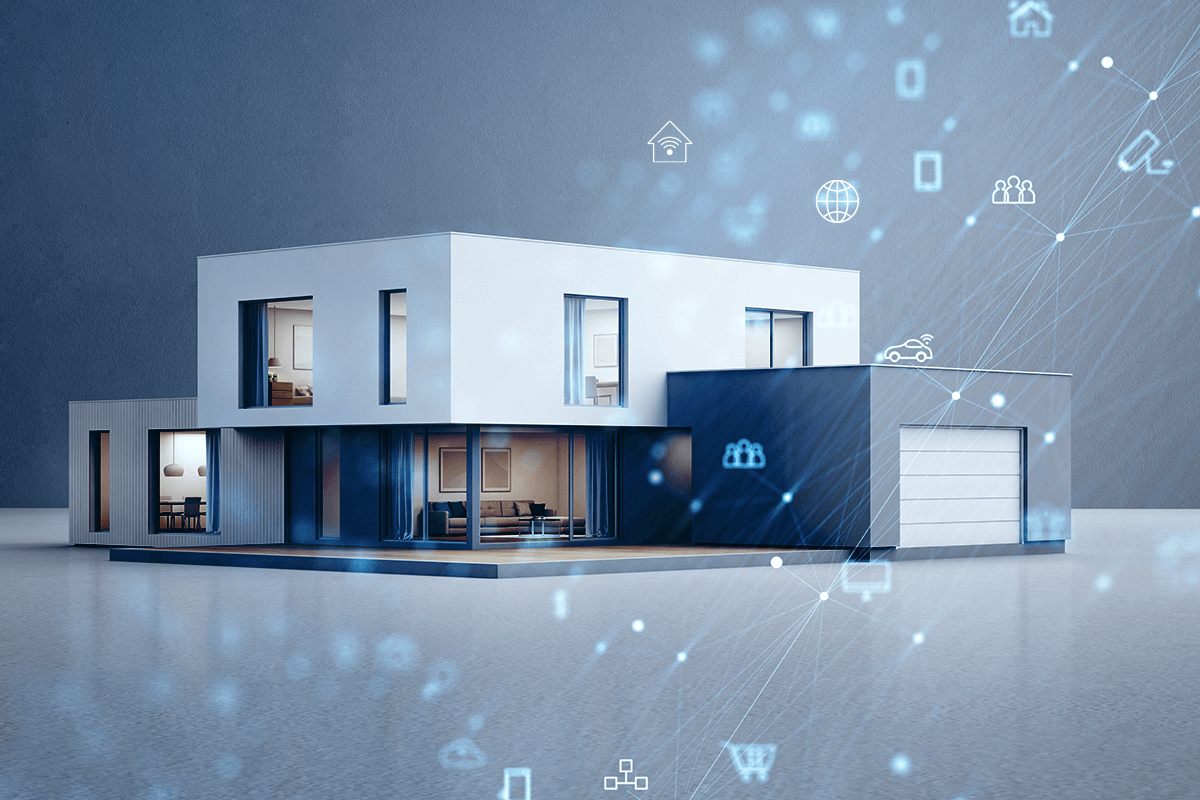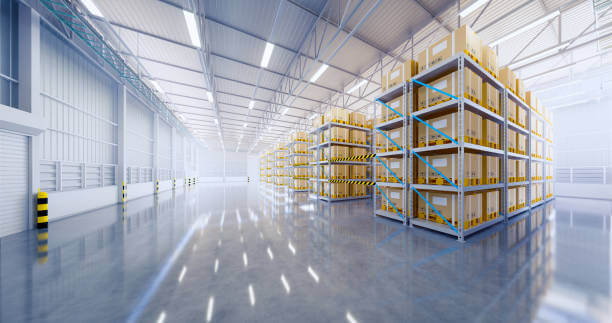What pops up in your head when you hear “smart homes” and “automated houses”? Many would think of lamps that switch on and off when we approach them and of running water that switches on and off when we move our hands under the tap. These obvious and pleasant everyday conveniences also reduce our electricity, power, and water bills.
But a smart home for property management is much more than a couple of simple tricks. Smart homes are the investment into a safe and secure life, cost-effective expenditure, and sustainability. And IoT is the key to the transformation of a regular home into a smart one.
How Do Smart Housing Solutions Work in Our Homes?
How do smart housing solutions work in our homes? It is a network of internet-connected systems: buildings (doors, windows), home appliances (boilers, running water), vehicles, actually any systems that you connect. You can control smart housing kits remotely via laptop or smartphone, doing it from a central hub. IoT devices of smart housing solutions are equipped with sensors (smoke, CO2, motion, leak, gas, temperature, humidity, etc.) and smart meters that collect data about consumption remotely. That means that they can detect preferences that you have and adjust the smart home system to them.
IoT for property management saves a lot of fuss for rental house companies and allows you to:
- Control your property remotely – switch on and off systems when it is rented or not;
- Monitor your property’s condition – all systems and mold;
- Analyze property issues – Boiler malfunction, state of gas and water pipelines;
- Schedule fixes – if the due date of the spare parts replacement is close;
- Remotely test property performance;
- Improve compliance;
- Enable tenants to resource save;
- Reduce the risk of incidents.
At their best, landlords and tenants can maintain and control their entire in-house system:
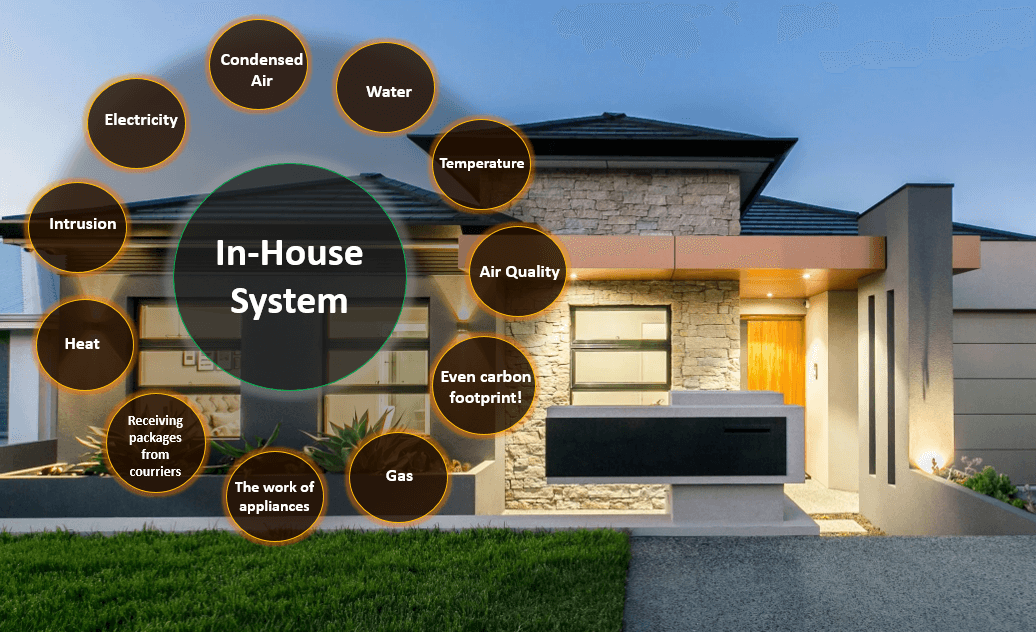
Though, some can regard the following as disadvantages of IoT property management:
- Professional installation expenses;
- Stable internet connection;
- Compatibility among devices;
- Voltage in your premises;
- Helplessness when the entire system fails;
- Repair costs.
For rental house companies, the Covid pivot, enacted by automated or smart housing, can save current tenants and lure the new, more expensive ones. Time for profligate wastage seems to be over and both tenants and landlords are eager to save resources.
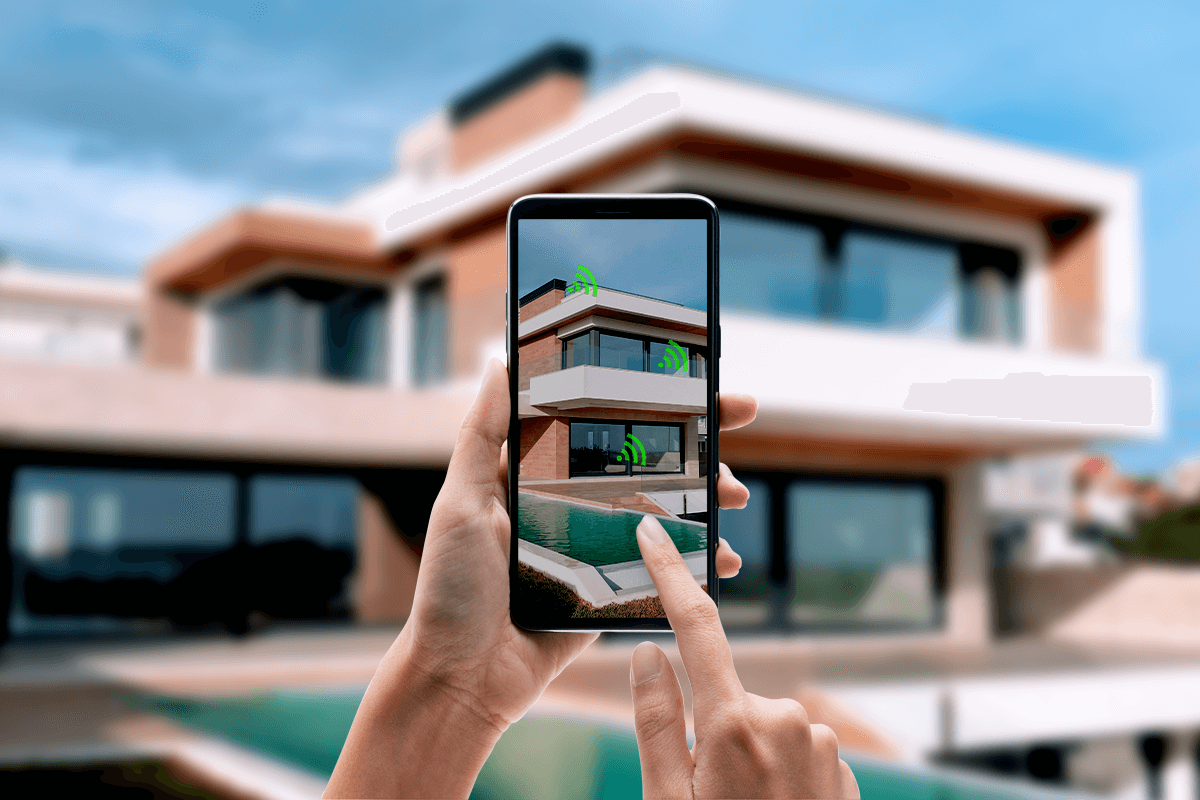
Smart Homes for Property Management: Benefits for Landlords
For real estate companies investing in smart homes means attracting wealthier and more responsible dwellers. After all, millennials, for example, agree to pay more if they know that the services/products they use are eco-friendly and sustainable. With IoT for housing, the price of your property will rise, targeting tech savvies looking for security and higher-class property for renting.
A 2019 study found that 73 % of global consumers intend to change their consumption habits to make a positive environmental impact.
Also, keeping current clients satisfied during the pandemic time requires ingenuity. The obvious benefits of smart housing for landlords, as we mentioned, are:
- Full control of the house systems, including maintenance notification and remote switch on/off;
- Incident prevention;
- Comfortable living for tenants;
- Lower bills for tenants.

In its simplest and most obvious guise, running a property that can communicate also offers many benefits to the house maintenance teams.
- Some tenants feel lonely at their homes and seek to often interact with service teams, mostly without any need – Without digital measurement tools. Maintenance teams have to contact these tenants on a daily or weekly basis, which negatively affects the work process;
- No access to residents – Sometimes tenants are not at home, and there is no access to read their data. IoT sensors can transmit real-time to landlords without manual efforts;
- Remotely solving house-related issues of residents – With Augmented Reality applications, rental companies can remotely assist residents who have smart housing systems in maintaining their house-related issues;
- Cut-off tenants can feel secure – In case a resident has no contact with the landlord, they can feel protected with the IoT systems for housing that transmit information about the house systems to the landlord regularly. For example, if the heating system of a vulnerable resident is out of use, the landlord will be notified immediately.
Modern Smart Homes for Incident Prevention
It goes without saying that safety from emergencies is a hidden number 1 benefit of smart housing – water floods, mold, gas leaks, and break-ins. Many property owners and tenants are not inclined to think of it while secretly hoping it won’t happen to them. But everything can happen, as the number 1 Christmas sequel Home Alone shows it, and, of course, we hope for the better. Still, a considerable volume of operating expenses while running a property comes from emergencies and incidents such as water floods in houses.
According to Entrepreneur, making homes smarter with the help of IoT sensors and smart meters reduces maintenance expenditure preventing costly repairments from 10 to 40%.
Apart from obvious inconveniences such as stress, strain for your loved ones, and ruining of expensive equipment, it requires time and finance for water waste, water removal, and mold remedy. But in case you have smart housing tech installed, the smart system will automatically block the water pipes to stop the leak. Moreover, it will notify you long beforehand of an emerging issue. So, if there is a gas leak in the gas pipeline, the smart home system will save both lives and the property.
You can find many “full-house” smart disaster prevention solutions for your home as Apple HomePod, Alexa, and Echo. Or you can choose a one-issue smart remedy as, for instance, Automist Smartscan for in-time fire extinguishing. Moreover, with the Nimb, a wearable ring, you can call emergency services secretly and much faster than when you have to rush to find your phone.
Advantages of Smart Homes for Tenants
If you are a tenant thinking about making a home smarter, there are actually no “don’ts”.
In the situation when we stay at our homes most of the day, have financial instability, whereas some people have to move out from unsafe zones, smart housing is what helps both- the luxury segment to ease the tension and “business class” to cut expenses.
Everyone deserves to have a convenient, affordable, and safe place to live. There are many ways to spruce it up and smart housing is one of them.
For residents, smart housing solutions bring a much better living:
- Automation of manual operations;
- Cutting your housing bills;
- Making you forget about house-related emergencies;
- Direct contact with all the necessary specialists;
- Intercom management which allows opening a door remotely;
- A messenger panel with the possibility to contact a landlord directly.
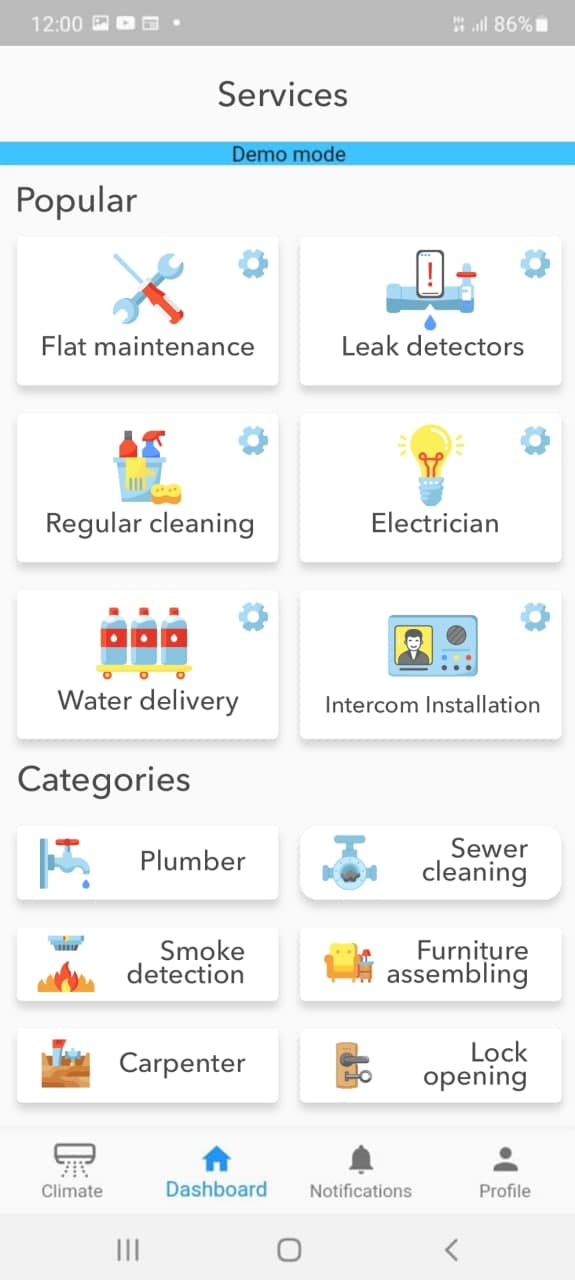
How Custom Smart Homs Save Your Money
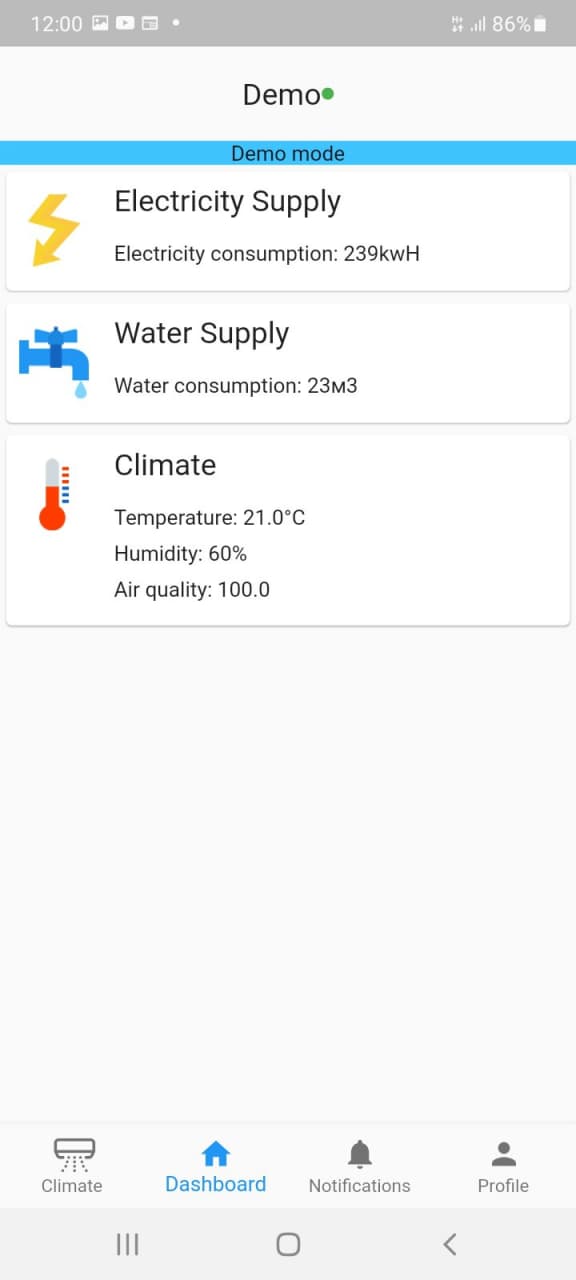
A smart meter is an electronic device that reads the consumption of electric energy, voltage, and power, showing residents their consumption habits.
When you are aware of how much electricity or water you consume daily or monthly, you can correct and adjust your habits to spend wisely. recording consumption patterns for a long period of time can provide landlords with the necessary analytics at any given period of time.
- No need to check the parameters manually;
- The chance to control the overall consumption and to see the bigger picture;
- Adjust consumption patterns to increase the level of energy efficiency.
Smart metering for landlords means an easy way to inform utility companies (every 15 minutes) with readings of measuring devices in their property while preserving compliance.
Conclusion
For a property manager, retaining tenants is just as important as attracting them. IoT for property management is an effective tool to eliminate expenses, attract new tenants, execute leases as well as spend expenses for the house maintenance staff.
Installing an IoT smart housing system is a decision, which has to be thoroughly considered, examining the advantages and disadvantages that we have already mentioned. But if you decide to install a smart housing system in your house, you can choose the price that you want to pay to install it.



